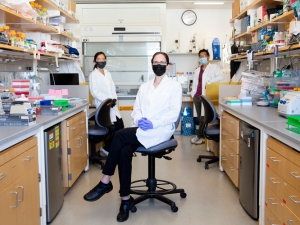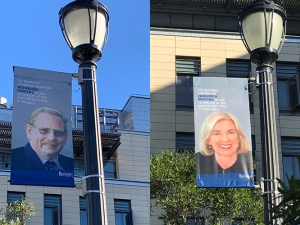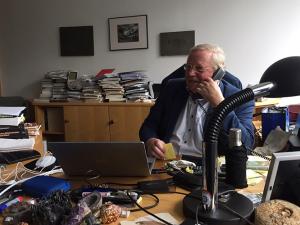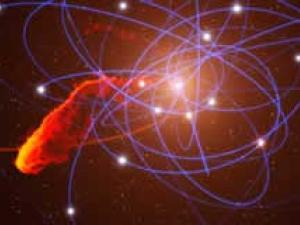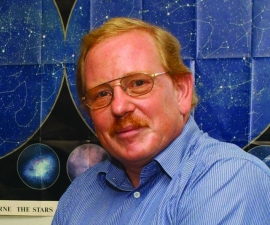

Research Bio
Reinhard Genzel is a Nobel Laureate and a Professor Emeritus in the Department of Physics. His research interests are in experimental astrophysics. His research group and he are studying the physical processes and the evolution of active galaxies and in particular of their central regions. One key issue they have been pursuing is the question whether the accretion onto massive black holes, or star formation powers active and luminous galaxies. For instance, in one class of very luminous galaxies they were recently able to demonstrate from mid-infrared spectroscopy on the Infrared Space Observatory (ISO) that enormous bursts of star formation triggered by the collision of galaxies can produce quasar-like luminosities in the infrared. Such galaxies were apparently much more common in the past than in the local Universe. They are also engaged in testing the paradigm that active galactic nuclei indeed all contain massive black holes. In the nucleus of our own Galaxy they were able to show from near-infrared imaging observations of the motions of individual stars in the central few light days that there must be a million solar mass, central black hole. Such key science goals have been driving their experimental program. They have been developing novel instrumentation, mainly in the infrared and submillimeter range, for large ground-based, airborne and space telescopes. They have been developing sensitive infrared spectrometers and imagers across the entire 1-1000mm band. They are active in the area of adaptive optics with laser stars.
Reinhard Genzel received his Ph.D. from the University of Bonn (FRG) in 1978. He came to UC Berkeley as a Miller Fellow in 1980 and joined the Physics Department faculty as Associate Professor in 1981. He left UC Berkeley in 1986 to become Director at the Max Planck Institute for Extraterrestrial Physics in Munich (FRG) where he is also Honorary Professor at the Ludwig-Maximilian University. In 1999 he came back to UC Berkeley as part-time Professor.
Awards and Honors include the Otto Hahn Medal of the Max Planck Society (1979), Presidential Investigator Award (1983), Newton Lacy Pierce Prize of the American Astronomical Society (1986), Leibniz Prize of the German Science Foundation (1990), Foreign Member of the Academie des Sciences (France, 1998), Lyman Spitzer Lecturer (Princeton, 1998), Sackler Lecturer 2000 (Princeton University), Oort Professor 2000 (Leiden University), de Vaucouleurs Medal 2000 (University of Texas, Austin), Foreign Associate of the US National Academy of Sciences (2000) and Prix Janssen (2001).
Reinhard Genzel shares half the 2020 Nobel Prize in Physics with UCLA professor Andrea Ghez "for the discovery of a supermassive compact object at the centre of our galaxy". The other half of the prize went to United Kingdom theoretical physicist Roger Penrose. Read more about this Nobel Prize.
Research Expertise and Interest
physics, existence and formation of black holes in galactic nuclei, nature of the power source, the evolution of (ultra)luminous infrared galaxies, gas dynamics, fueling of active galactic nuclei, properties evolution of starburst galaxies
In the News
High-powered, but supportive, environment draws students to Nobel winners’ labs
Nobel Prize ceremonies go virtual for Doudna, Genzel
UC Berkeley’s Reinhard Genzel awarded Nobel Prize in Physics
Disaster looms for gas cloud falling into Milky Way’s central black hole
Astronomers led by UC Berkeley’s Reinhard Genzel, also of the Max Planck Institute in Germany, have observed a cloud of gas several times the mass of Earth approaching the 4.3 million solar-mass black hole at the center of the Milky Way. Theorist Eliot Quataert calculates that the cloud will not survive the encounter, but will be heated and shredded in 2013.

